Control of Terrain in Iraq: August 7, 2014
Aug 7, 2014 - Institute for t...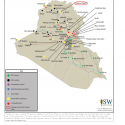
Changes for August 7 update: ISIS gunmen deployed to the Ninewa Plains, an area that includes many villages that are historically home to a large Iraqi Christian population.

Changes for August 7 update: ISIS gunmen deployed to the Ninewa Plains, an area that includes many villages that are historically home to a large Iraqi Christian population.
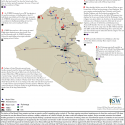
The status of the Mosul Dam remains unclear as reports conflict regarding who controls it.
The swift collapse of Iraqi security forces in northern Iraq in the face of an al-Qaeda-spearheaded Sunni insurgency is a disastrous setback for U.S. counterterrorism and Middle East policies that will have dangerous regional spillover effects. The Islamic State, formerly known the Islamic State of Iraq and Syria, and before that as Al-Qaeda in Iraq, now poses a rising threat to the United States and U.S. allies.
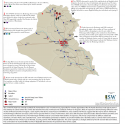
ISIS control of Sinjar has severely escalated the humanitarian crisis in northern Iraq, especially for minority populations like the Yezidis that face brutal persecution if they attempt to subsist under ISIS control.
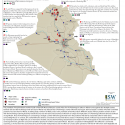
The president of Iraqi Kurdistan and the leader of the KDP, Masoud Barzani, issued orders for the Peshmerga to take an offensive role against ISIS.

There were unconfirmed reports that ISIS took Mosul Dam yesterday. It is unlikely that the Peshmerga would surrender this critical piece of infrastructure, hence the deployment of Peshmerga reinforcements to the dam that was reported today.
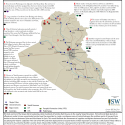
ISIS took control of the Sinjar district yesterday, while hundreds of families fled the area to the nearby Sinjar Mountain.
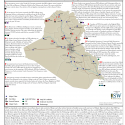
ISIS has launched a new offensive in northern Iraq to take control of Sinjar and other critical terrain in Kurdish areas north and west of Mosul.
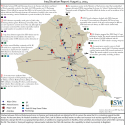
Clashes between ISIS and Peshmerga forces in Zammar and Jalula indicate an attempt by ISIS to secure the areas that it is contesting against Kurdish troops.
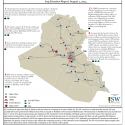
ISIS continues to attack the Baiji oil refinery with the intent to complete its control of Baiji city.